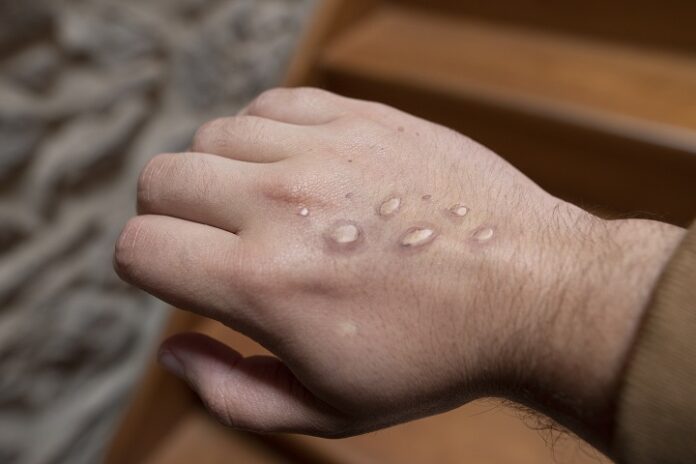Canada’s top doctor said 58 cases of monkeypox have been confirmed nationally as of June 3.
Speaking to reporters at a health briefing Friday, Dr. Theresa Tam, chief public health officer of Canada, said 52 of the confirmed cases are in Quebec, five in Ontario and one in Alberta.
According to the World Health Organization (WHO) website, monkeypox is a disease that is transmitted from animals to humans and it comes from the same family of viruses that causes smallpox, which was declared to be eradicated in 1980.
“The risk of exposure to monkeypox isn’t exclusive to any group or setting,” Tam said at the briefing.
“Anyone, no matter their gender or sexual orientation, could get infected and spread the virus if they come into close contact, including intimate sexual contact with an infected person or a contaminated object,” she added.
Monkeypox symptoms consist primarily of skin lesions on the mouth and genitals, and they can also include fever and headaches, as well as joint and muscle pain, according to the WHO.
Trending Stories
With Harry and Meghan at Platinum Jubilee, is the Queen tying up ‘loose ends?’
Ontario Progressive Conservatives win another majority government
WHO doesn’t expect monkeypox to turn into another pandemic
Canada confirmed its first two cases of monkeypox on May 19 when two individuals in Quebec tested positive for the rare disease.
Monkeypox cases in Canada are suspected to have originated from a local sauna in Montreal, doctors have told Global News.
However, government officials have so far stayed clear of confirming the origin of monkeypox in Canada citing concerns of privacy and stigmatization.
Despite the growing number of cases since then, deputy chief public health officer Dr. Howard Njoo said last week that mass vaccination is not needed, yet.
Njoo said because the virus “doesn’t discriminate” and can be spread through close contact with an infected person, people can avoid infection by “maintaining physical distance from people outside their homes.”
“As well, wearing masks, covering coughs and sneezes, and practicing frequent handwashing continues to be important, especially in public spaces,” he told reporters at a health briefing last week.
— with files from Saba Aziz and Sean Boynton
© 2022 Global News, a division of Corus Entertainment Inc.



